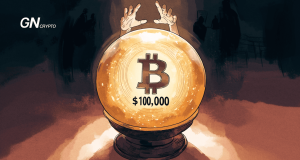Another Crypto Scam Fades to Black

And more people have lost their money in yet another crypto scam dubbed Harvest Keeper.
On this page
According to Certik Alert, which describes itself as Web3's leading smart contract auditor and provides a comprehensive suite of tools to secure the industry at scale, Harvest Keeper turned out to be a fraudulent project.
In their tweet dated March 19, Certik Alert writes that they can confirm that Harvest Keeper is a scam. “At the time of writing, we can confirm ~$933k of users' assets have been stolen. Revoke permissions to EOA: 0x250ce5a8d8a8f0345fb8708e0575c8ede7710c14. Do not interact with the project's URL,” reads the tweet.
Source: Twitter
The company adds that the Harvest_Keeper contract was drained by a privileged get Amount` function, which transferred ~$709k USDT to EOA 0x027c8. Contract bsc: 0x28120471E1e42e15a71Af5E39cA9f93099F34d2d. The funds are currently held in EOA 0x92288.
“At the same time, user assets have been stolen through ice phishing transactions across BSC, Ethereum, and Polygon. Across the 3 chains, ~$219k have been stolen in ice phishing transactions so far. Stolen assets transferred to EOA 0x15a8a,” they write.
Harvest Keeper claimed that its project relied on artificial intelligence to “optimize the trading process for maximum payout” and promised to return 4.81% of deposits.
At the time of writing, the company's Twitter handle, website, and Medium page are unavailable.
Source: Twitter
Some victims have already come forward, asking the community how to recover their funds. Unfortunately, the options provided by some users — Earn Back Experts and Harvest Keeper Support — appear questionable, as the former only features three tweets, while the latter has only one follower.
Source: Certik.com
On March 15, Certik Alert confirmed that Poolz Finance was a scam. A total of five fraudulent schemes have been identified this month alone.
As previously reported by GNcrypto, Arkham revealed that the Arbitrum network transferred funds to 2,400 wallets that may have been hacked.
Also, make sure to read our article about how to spot a scam token.
The content on The Coinomist is for informational purposes only and should not be interpreted as financial advice. While we strive to provide accurate and up-to-date information, we do not guarantee the accuracy, completeness, or reliability of any content. Neither we accept liability for any errors or omissions in the information provided or for any financial losses incurred as a result of relying on this information. Actions based on this content are at your own risk. Always do your own research and consult a professional. See our Terms, Privacy Policy, and Disclaimers for more details.





























